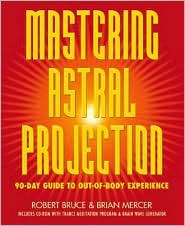This right here nails modern cafeteria spirituality to the wall:
…we do not draw near to the “mystery of God” with anything like the fear and trembling of our ancestors, and when we tire of our devotions and drift away we do not expect to be pursued, either by the furies or by the hounds of conscience.
This is especially obvious at modern Western religion’s pastel-tinged margins, in those realms of the New Age where the gods of the boutique hold uncontested sway. Here one may cultivate a private atmosphere of “spirituality” as undemanding and therapeutically comforting as one likes simply by purchasing a dream catcher, a few pretty crystals, some books on the goddess, a Tibetan prayer wheel, a volume of Joseph Campbell or Carl Jung or Robert Graves, a Nataraja figurine, a purse of tiles engraved with runes, a scatering of Pre-Rachaelite prints drenched in Celtic twilight, and Andean flute, and so forth, until this mounting congeries of string, worthless quartz, cheap joss sticks, baked clay, kitsch, borrowed iconography, and fraudulent scholarsip reaches that mysterious point of saturation at which religion has become indistinguishable from interior decorationg.
There could scarcely be a more thoroughly MODERN form of religion than this. The peoples of early and late antiquity actually believed in, adored, and feared their gods. No one really believes in the gods of the New Age. They are purchased gods, gods as accessories, and hence are merely masks by means of which the one true god – the will – at once conceals and reveals itself.
-David Bently Hart, Atheist Delusions: The Christian Revolution and its Fashionable Enemies, p.24 (with some editing)
I heard a LOT about the “New Age” growing up. It got a mentioned in a sermon at least once a month. Sunday school classes were devoted to topics like “Refuting Trancendental Meditation”. Even sun-catcher crystals were frowned upon as they might be mistaken for their (usually pyramid shaped I think) evil equivalents that were used for something called “channeling”. Frank Perreti was hot stuff. Actually, I still like Peretti. He’s a good storyteller.
The point is, I was always just a tad suspicious that nobody really cared about this stuff. I mean, these people don’t believe in a god that ACTUALLY cares about what you do. He (probably She actually) certainly doesn’t have strict moral standards. Is the cancer of our communities and our nation the fact that some folks take their Yoga class a bit to seriously or that Sally read a book about Wicca or that somewhere out there, somebody is into astral projection? I’m not talking about the trance electronica band, by the way.

I didn’t know ANYONE into the “new age” growing up. But I sure as heck knew a lot of people who were really into their big-screen TVs, their cars, their beer, their sex. Later, I moved to a more urban area where there really were some people that toyed around with Zen Buhdism, shaman sticks, you name it. Did that show up in their life though? What I saw was people caring a heck a lot about their jobs, their vacation time, their mortgage, their (nicer) cars, their weight. Same thing all over again.
Hart nails it here. All this is not any sort of real religion. It’s just a front for the one true god, our own self, our own will. It’s just another way we consumers worship… ourselves. What’s missing from all the scary “new age” we Christians are supposed to be really on the watch for? Real power. Real spiritual forces. Real invisible anything other than our own selves. How come (I’m guessing) 99% of people toying around with some form of new age spirituality don’t actually encounter any real energy? Because when you get beyond the beyond and all that, all you find in the center of the universe is your own self, doin’ whatever the hell you want to. Big surprise there.
Going back to my childhood for just one more moment – I’m not knocking the fact that some people were concerned about this sort of thing. I just think a bit more exhortation against consumerism and self-centeredness would have got closer the heart of the problem. I could still use a big dose of that from time to time.
